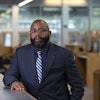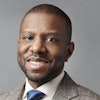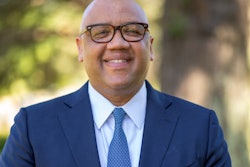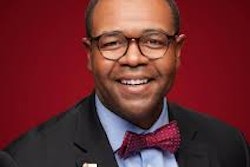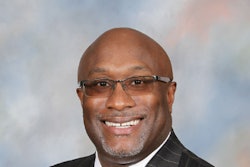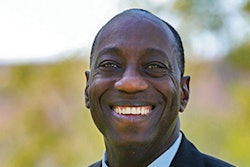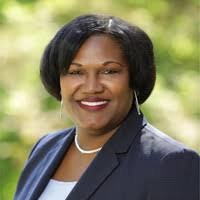 Dr. Kelli Sims Butler
Dr. Kelli Sims Butler
Research has shown that Black women face unique challenges in the workforce and in leadership; however, despite persistent obstacles, including a lack of mentorship and feedback, a dearth of role models, and discrimination in hiring and promotion, Black women continue to excel in their chosen fields and rise to leadership positions. In this article, we share the perspectives of three Black female CEOs and our rise to the college presidency.
Reflections from Dr. Kellie Sims Butler, Superintendent President, Solano Community College: Lessons from Failure to Leadership
As I reflect on my path to the presidency, I am reminded of the words of Maya Angelou, “Each time a woman stands up for herself, without knowing it possibly, without claiming it, she stands up for all women.” My success has been shaped by failures, triumphs, and uplifting others along the way.
Growing up in inner city Houston, TX, I was raised with the understanding that I had to work twice as hard to excel in spaces not designed for me.
Over the course of my education and career, I’ve carried “life” baggage and self-doubt, made mistakes, and experienced obstacles that impacted my success. What I didn’t realize was that my perceived failures were not the end of my journey but chapters of my story. These experiences provide the deepest insights into who I am and shape my leadership style: one driven by empathy, persistence, and authenticity.
Mentorship plays a pivotal role in my journey. I would not be here without mentors and allies who saw in me what I didn’t always see in myself. Their guidance helped me reframe failure as an opportunity to grow. Now, I see mentorship as reciprocal—a process where both mentor and mentee learn and grow. I intentionally mentor others, helping them navigate the challenges of higher education leadership and empowering them to take ownership of their journeys.
My professional training and my lived experiences inform my perspective in a world that often seeks to undermine the voices of women who look like me. I understand firsthand the challenges students face because I have lived them. I know what it’s like to balance competing responsibilities, feel out of place in academic spaces, and to confront implicit and explicit biases. These experiences have given me a unique lens through which I approach leadership, prioritizing equity, access, and the holistic well-being of our students.
Lastly, my failures have taught me that leadership is not about perfection–it is about persistence. As leaders, we are constantly evolving, learning, and growing. Most importantly, our failures are not only personal learning opportunities—they are opportunities to model resilience for those who look to us for guidance.
So, to Black women aspiring to leadership in higher education I say this: there is space for you here, we need your voices, your perspectives, and your leadership.
Reflections from Melanie Dixon, President, College of Alameda: An Unscripted Journey from Concrete Jungle to the Boardroom Melanie Dixon
Melanie Dixon
Growing up in the inner city as a young Black girl in a single parent low-income household during the height of the crack epidemic, one did not dream of grandeur. We spent our days navigating the daily disappointments, insecurities, threats, and loss. My pathway to the presidency was an unplanned journey riddled with landmines, compromise, and unrelenting work ethic.
My journey into higher education began at Portland Community College (PCC) as a Pre-K student at the on-campus childcare center. I later earned my General Education Diploma (G.E.D.) and returned as a 27-year-old single mother to earn my associate’s degree for transfer. By the time I transferred to the State University, I realized I was a decent student and no longer anxious about my financial aid being denied for academic standing. I did worry about declaring a major and contemplated majoring in Black Studies to ensure my professors looked like me. I decided to step outside of my comfort zone and pursue Communications Studies.
I was fortunate to meet Rosalyn Farrington, a Black feminist professor teaching in the Women’s Studies Department and she introduced me to Audre Lorde’s The Master Tools Will Never Dismantle the Master’s House. This experience shifted my worldview and activated my commitment to social justice. I began teaching College Success courses to first generation, low income, multicultural students. I remember searching–to no avail–for a textbook that contextualized the lived experiences of my students. I decided to channel my inner Audre and started positioning myself to dismantle the unjust system.
My transition into administration was an act of resistance and liberation. I wanted to prove that an inner-city Black girl was highly capable, and make it known that when Black women eat, everyone eats. Every promotional opportunity secured throughout my career was the result of my unmatched work ethic and passion to serve the community. I discovered the hyper visibility experienced as a Black woman in my impoverished community didn’t change when I became a college president. The angry Black woman, welfare queen, and jezebel tropes are ever present in the halls of academia.
As a Black woman serving as the president of a higher education institution, I’ve questioned my abilities and contributions. I draw strength from the QUEENDOM—my tribe of women serving in executive positions in higher education. I recommend that every aspiring CEO build a network of leaders to support your success.
“Like most who are underestimated, I’ve learned to overperform. “— Stacey Abrams
Reflections from Dr. Ashanti Hands, President, San Diego Mesa College: Passionate Pursuit of My Purpose
 Dr. Ashanti Hands
Dr. Ashanti Hands
Growing up where excellence was often overlooked yet deeply ingrained in our spirit, I developed a passion for educational justice and a commitment to empowering those historically excluded from educational systems. My experiences taught me to see possibilities where systems posed barriers.
Like many Black women in academia, I have faced systemic barriers and wrestled with imposter syndrome, often questioning, “Am I enough?”
Navigating spaces where my identity was both hyper visible and undervalued, I understood the unique burdens and strengths of Black female intersectionality’s and learned to embrace my story rather than conform to expectations. As Brené Brown says, “You can walk in your story and own it, or stand outside your story and hustle for worthiness.” Walking in my story allows me to lead authentically, show up worthy and has transformed my tests of life into testimonies of resilience and purpose.
Guided by Ebony Janice’s declaration, “I’m going to find a way to be me for a living,” I approach my work—not as someone performing leadership but as someone living it. This mantra centers my voice and compels me to pursue not just what is possible but what is needed, working in ways that heal, avoid harm, and center joy while honoring the community I serve.
Mentoring women honors those who poured into me, extending their legacy through collective empowerment. This commitment drives my work as a founding member of the Nandi Organization, where we amplify Black women’s voices while advancing equity in California community colleges.
I encourage aspiring female presidents to identify their “why” and let it, not the title, direct their journey. Embrace your unique perspective as a woman. Step into every space knowing that you are worthy and leverage your unique gifts and experiences to fulfill your calling. Your voice, presence, and purpose are vital to transforming our system—embrace them boldly and pursue them with passion.
Editor’s Note:
The journeys of Presidents Butler, Dixon and Hands illuminate the resilience, authenticity, and purpose that define Black women leaders navigating the path to college presidency. Our stories highlight the systemic barriers we have overcome and the transformative power of mentorship, community, and unapologetic authenticity. Despite facing challenges of underrepresentation, implicit biases, and the weight of societal stereotypes, we have turned obstacles into opportunities for growth and empowerment. Our reflections underscore the critical importance of equity-minded leadership that prioritizes inclusivity and access while amplifying historically marginalized voices. By embracing our lived experiences as a source of strength, we inspire the next generation of Black women to break barriers, pursue their purpose passionately, and redefine what leadership looks like in higher education. Our collective message is clear: the leadership of Black women is not only necessary but transformative, lifting entire communities as we rise.
Behind the Desk: Perspectives of Black Community College CEOs is a column edited by Drs. Tina M. King, Jamal A. Cooks and David M. Johnson.

